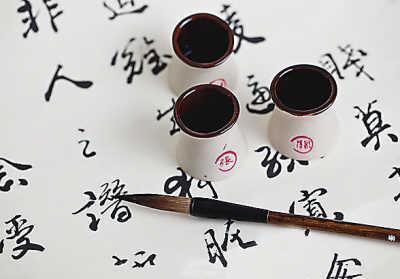 |
|
Photo by Xinhua
|
A number of recent reports draw my attention to the definition of our national identity.
An article titled "The focus of English teaching is to cultivate a holistic personality" (Wenhui Daily, November 27) says that it is insufficient to merely regard the ability to use the English language as part of the core objectives.
"More important, (English teaching) should aim to change a student's intellectual equipment and life, in the sense of cultivating the total personality," said Gong Yafu, an education expert.
This is a confusing observation, especially in view of rising concerns over the cultural identity of the Chinese people.
Nation is defined as "a large body of people united by common descent, history, culture or language, inhabiting a state or territory."
Rich legacy of Chinese classics
Obviously, the Chinese language is central to our national identity because it builds a link between us and our ancestors, enabling us to access the rich legacy of Chinese classics at their most authentic as left by our ancestors.
This distinctly Chinese legacy initiates us into the sweetness and light that have sustained our forefathers, inculcating in us a Chinese outlook and philosophy that set us apart from other peoples.
An English primary school student may be inspired by exploits of a wise and good English king called Alfred the Great, who was busy ruling and fighting, while an educated Chinese used to be acquainted with the tale of a Chinese king whose suppression of a rebelling brother drove home the message of fraternity that is central to the Confucian tenets.
Seen in this light, our educators have good reasons to be more concerned over the fragmentation of Chinese education, rather than the failure to make Chinese youth more English, or American.
Dominance of English
As a matter of fact, the failure to provide effective Chinese education in many schools today can be in good part attributed to the dominance of English learning as a foreign language.
It was pointed out at a recent forum that classic Chinese poetry and prose as taught at many middle schools is so inadequate that it falls short of the stated education objectives ("Let traditional cultural education cease to be test-oriented," Wenhui Daily, November 26).
The failure of Chinese education to arm our children with values and outlook peculiar to the Chinese people can be attributed to the fact that the orthodoxy of traditional values is steadily eroded by Western influences in many aspects of life.
Today liberal encomiums are routinely paid to the rise of China as a global factory, but many fail to relate this to the Chinese culture, with its emphasis on frugality, the habit of savings, family duty and loyalty, humility, politeness, and faith in honest work.
When our next generations, no longer brought up on those virtues as exemplified by their parents, begin to subscribe to Western values with their emphasis on consumption, individualism and personal satisfaction, today's young migrants are no longer so ready as their parents to put on the safety helmets at constructions sites, or man the assembly lines.
They are neither here nor there, unwilling to return to the soil tilled by their grandparents, and doubly unwilling to come to terms with the stigmas associated with the migrant status.
